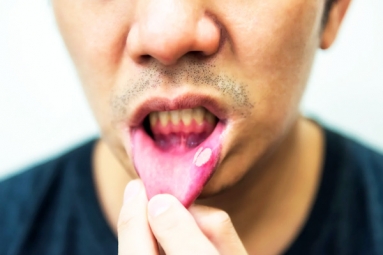
(Image source from: Canva.com)
Long before scientists started studying it, people thought red wine was special. Everyone from families at mealtime to doctors in the late 1990s and early 2000s believed that a glass of red wine each day was good for you. It was supposed to help your heart, fight swelling, and keep you healthy for a long time. Over time, the story became well-known. Red wine got a reputation as a drink with special powers. People said it had antioxidants, could lower cholesterol, and even help your liver. It was seen as the good kind of alcohol, unlike other drinks. However, the truth is coming out, and it's making people question what they thought about red wine. In July 2025, doctors at Keck Medicine of USC released a big study in Clinical Gastroenterology and Hepatology called “Significant Liver Disease Among Increased Alcohol Consumers More Than Doubled From 1999 to 2020 Alongside Evolving U.S. Population Demographics."
The study showed a surprising fact: liver problems from alcohol have more than doubled in the last twenty years. People who drink a lot today are more than twice as likely to get serious liver problems compared to heavy drinkers twenty years ago. Also, the World Health Organization (WHO) said it clearly: "There is no safe level of alcohol consumption for health." This statement, from a study in The Lancet Public Health, went against the idea that drinking a little, especially red wine, was good for you. Red wine was promoted for years as a "healthy" drink, based on older studies that found less heart disease in people who drank wine. Big studies supported these ideas, but they didn't always consider things like diet, money, lifestyle, or how people really drank.
As time went on, better studies started to question this. The studies showed that the supposed good effects were just tricks of numbers, caused by comparing the wrong groups of people. Many early studies compared people who drank a little with people who had stopped drinking because they were sick, which made it look like a little drinking was healthy. The WHO pointed out this problem, saying, "Potential protective effects of alcohol consumption suggested by some studies are tightly connected with the comparison groups chosen and statistical methods used." Even with the facts, the myth about red wine continued.
For people already dealing with liver issues like fatty liver or Metabolically Dysfunction – Associated Steatotic Liver Disease (MASLD), the impact of this misunderstanding can be quite serious. MASLD, which was once called NAFLD, is rapidly becoming one of the most common liver problems around the world, closely linked to what people eat, being overweight, metabolic disorders, and not being active.
A lot of individuals with early-stage MASLD show no symptoms, which means they don’t know about their risk. What they might not be aware of is that alcohol, even in small or moderate quantities, can make the situation worse. A study published in Clinical Gastroenterology and Hepatology in July 2025 has become one of the most frequently referenced studies on liver health. By examining two decades of nationwide data from the U.S., researchers identified a troubling trend.
The findings indicate that liver disease caused by alcohol has more than doubled since 1999. This rise also aligns with changes in drinking habits, a rise in metabolic diseases, and shifts in the population. Additionally, those who consume large amounts of alcohol are now at a much greater risk of developing liver issues compared to 20 years ago. The research states that "Americans who drink heavily are more than twice as likely to develop serious liver disease compared to two decades ago." The idea that only 10-20% of heavy drinkers will get liver disease is outdated. With evolving lifestyles, liver diseases linked to alcohol continue to be the main cause of liver-related fatalities.
The notion that red wine is unique and good for health remains unsupported. As stated by the WHO, “It is the alcohol that causes harm, not the beverage." Red wine contains ethanol, the same harmful compound found in beer, vodka, rum, and whiskey. No antioxidant present in wine, including resveratrol, can counteract the damage caused by ethanol. One critical health fact often ignored is the dangerous link between alcohol and fatty liver disease. The World Health Organization has made it clear: “There is no safe level of alcohol consumption for our health." This statement, published in The Lancet Public Health, highlights several important points:
Alcohol is classified as a Group 1 carcinogen: It causes at least seven different types of cancer, including cancers of the breast, bowel, and mouth.
The risk of cancer starts with the very first drink – not just with heavy or excessive drinking: Even "light" and "moderate" drinking contributes to a significant number of cancer cases related to alcohol.
Alcohol disproportionately affects vulnerable groups: Despite ongoing discussions, the evidence clearly shows that any amount of alcohol can cause harm.
No research definitively shows that the potential benefits of alcohol outweigh its risks: People from low-income backgrounds often suffer worse health outcomes from the same drinking levels.
Recent studies reveal that key public health messages are becoming clearer:
Alcohol is harmful no matter its form, quality, or amount.
Consuming alcohol daily, even in small quantities, may speed up liver disease.
The risk of cancer rises with any intake of alcohol.
Individuals with MASLD, obesity, diabetes, or metabolic syndrome are at an increased risk.
The idea that drinking red wine can boost heart health or guard the liver has been proven false. A study published in Clinical Gastroenterology and Hepatology reveals a significant increase in liver disease linked to alcohol. The World Health Organization clearly indicates that there is no safe amount of alcohol.










